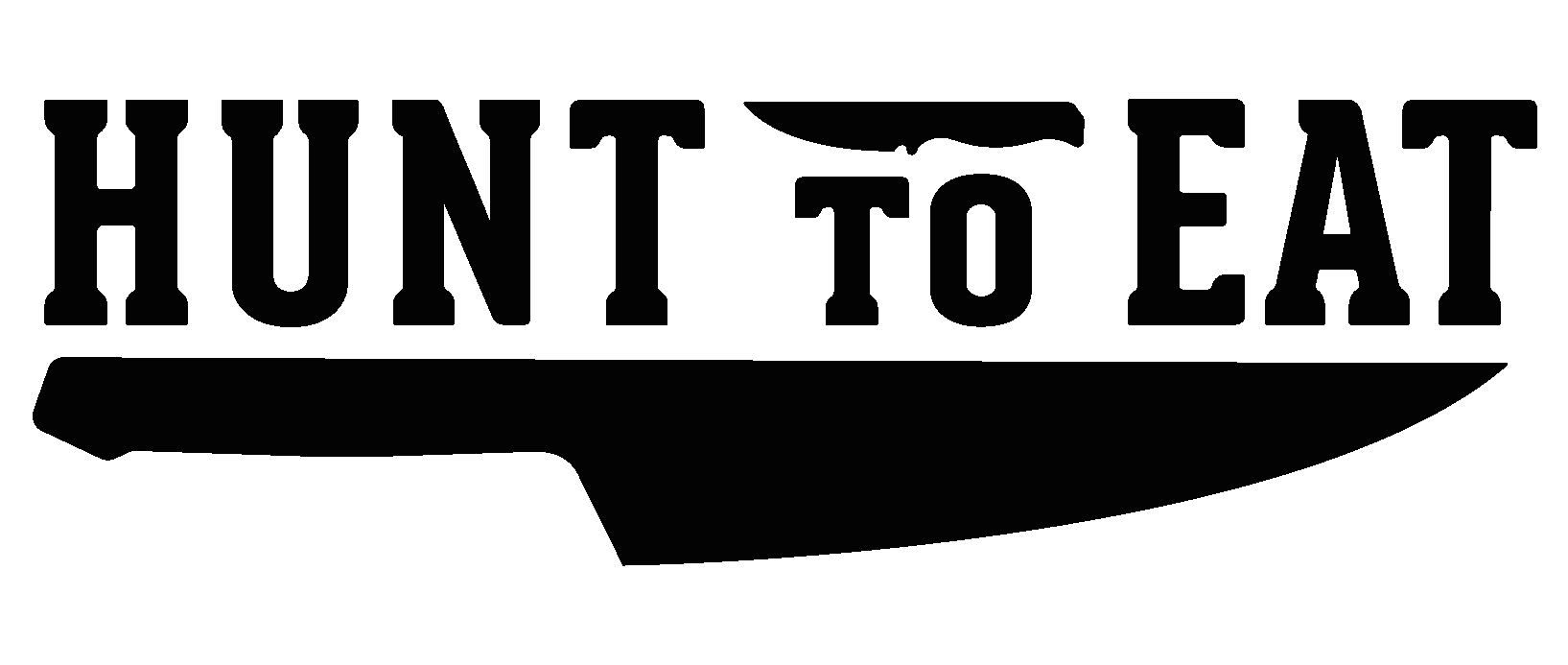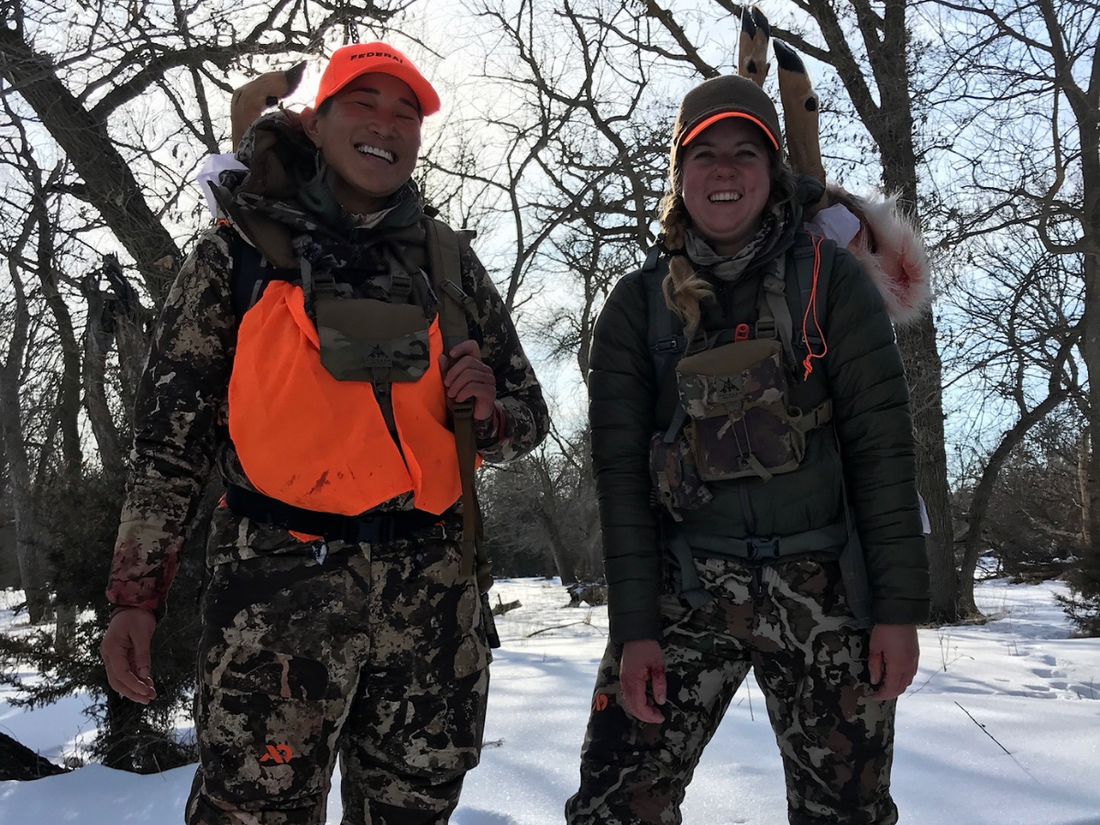By Casey Pelzl, Cindy Stites, Gabby Zaldumbide, Liz Lynch, Mahting Putelis, Paul McCarney
“Diverse” is more than just a description of how a population looks. When we ensure and promote diversity, we open the door for more creative problem-solving, a stronger and deeper knowledge base, and infinite perspectives on how we might look at something.
The hunting community has always been strengthened by diversity. Learning from one another’s experiences is how many of us find new hunting areas or strategies. A range of mentors who can each share their expertise will make us better hunters. The same principle extends to our role as social actors in a hunting community. The more perspectives we hear, the more we will learn and the stronger our community will be.
“None of us is as smart as all of us.” - Kenneth Blanchard
Mentorship is an important part of hunting and has historically been a critical element in the development of hunting culture. Mentors not only teach the physical skills needed to hunt but also pass on ethics and lessons about hunting that shape our views on our relationships with the world. Addressing important social issues such as gender inequities in hunting gives us opportunities to stand out as mentors to new hunters and bring them into what will be a stronger and more positive hunting culture.

Gabby mentoring her friend, Timon, at a public shooting range. This was Timon's first time shooting a firearm.
Gender and Mentorship
A recent article published in the journal Nature Communications, titled “The Association Between Early Career Informal Mentorship in Academic Collaborations and Junior Author Performance,” investigated the role of gender in mentor-apprentice relationships in academic settings.
In brief, the authors state:
We find that increasing the proportion of female mentors is associated not only with a reduction in post-mentorship impact of female protégés, but also a reduction in the gain of female mentors. While current diversity policies encourage same-gender mentorships to retain women in academia, our findings raise the possibility that opposite-gender mentorship may actually increase the impact of women who pursue a scientific career.
In other words, the authors suggest when a female apprentice has a female mentor, both experience less future success. The authors then continue to suggest that having a male mentor will make women more successful in science.
In response, thousands of people in the academic community erupted with stories about how non-male mentors were integral to their success, and pointed out that the paper’s conclusions were simply incorrect and based on poor science. The journal retracted the paper due to problems with the quality of the study and in recognition of the authors’ perspectives about mentorship, success, and gender being completely removed from political context and reinforcing harmful social structures. The reviewers should have also asked, “Even if the study was performed with utmost attention to the scientific method and used perfect analysis procedures, is it ethically and morally appropriate? Does it add to the scientific literature?” The answer to both questions would be a resounding “no.”
Among other problems, the authors neglected to meaningfully engage with existing gender power relations within academic cultures and institutions that reinforce patriarchy and other forms of gender power. Are men inherently better mentors and better scientists? Invariably, again, the answer is no. Discussions of different outcomes of success in the scientific community must also consider the role of gendered power relations.
Equally as important, discussions of gender issues should also work to dismantle power imbalances and actively create a more equitable and just community. These efforts should stretch to all gender-based power imbalances, no matter where they might exist.
What Does This Have to Do with Hunting?
At Hunt To Eat, we saw several parallels between the conclusions and implications of the Nature Communications paper and many elements of the hunting community and hunting culture.
As the Hunt To Eat community discussed the paper and its conclusions, we highlighted our personal experiences with non-male mentors and the valuable role those individuals played in our personal and professional lives. We noted that many of our favorite hunting companions are non-males and talked about what we have learned from non-male hunting friends. We named non-male writers, podcasters, CEOs, scientists, media personalities, and mentors who are leaders in the hunting and conservation communities.
While men still comprise around 90% of hunters, women are the fastest growing proportion of hunters. Additionally, while hunting participation rates among men have declined since 1991, they have stayed relatively consistent among women. Anthropological and archaeological evidence has also well established the fact that throughout human hunting history, women have always been hunters. Perceived gender roles in hunting are a modern social invention.
These historical and statistical facts are important but also somewhat beside the point. It is not only about setting the historical record straight. It is also important that we create the culture and future we want in hunting.

Gabby's elk hunting mentor, Adam Gall, helping her field dress and break down her first elk in 2018. Adam and his wife, Ana, run Timber to Table Guide Service which provides learn to hunt elk programs for women and more.
Hunting culture is still largely dominated by men and masculinity. It is visible via simple indicators such as the proportion of men’s clothing compared to women’s clothing options (though, this is improving with women’s focused clothing companies such as Prois and Isle Royale Outfitters), the dearth of weapons and accessories that properly fit women (e.g., rifles and shotguns with a shorter length of pull, backpacks with proportions appropriate to the female form, etc.), and the vastly unequal gender composition of many popular hunting platforms and forums (check out The Artemis Podcast for great content from women). Although the “shrink it and pink it” methodology for outfitting women is fading, there is still more work to be done.
The dominance of a singular gender perspective in hunting reinforces similar values as those expressed in the paper on gender in academia and perpetuates structures that position men as more successful and necessary to the mentorship of women. It is a self-fulfilling prophecy– and one that is potentially harmful to the growth of the population of hunters. The hunting community needs non-male hunting mentors and voices and we need to emphasize that they are important to our success.
Our Task
The task before the hunting community is to actively challenge notions that men are more successful hunters and, therefore, more valuable as hunting mentors. In recent North American hunting history, men most often initiate women into hunting. But this is shifting, and we must facilitate its shift. As a hunting community, we need to promote, elevate, amplify, and celebrate the voices and perspectives of non-male hunters.
To the hunting community, we encourage you to make space for the voices and experiences of non-male hunters. Invite them onto your podcasts, collaborate with them on writing projects, and share their stories. We also implore you to ensure you create physical spaces that are welcoming to non-male hunters. Ensure your hunt camp invites women and that you actively recruit women into your inner hunting circles. When you are in the field, treat non-male hunters with respect and make them feel safe. All too often, the inclusion of a woman on a hunt is treated as a chore or a problem, even before that woman has a chance to demonstrate her knowledge and abilities. Women do not deserve the automatic title of “less-than.”
Particularly to male readers, in your everyday lives, and especially on social media, show the courage to speak up, challenge stereotypes and sexist language, and confront harmful sentiments about non-male hunters and mentors being less valuable. It’s critical that you show yourself as an ally in these efforts and set an example for other men.
We need to listen to the women in our lives and appreciate their influence. This is not about devaluing the voices and perspectives of men or anyone else; this is about appreciating a multitude of influences and the different values that people have added to your life. It’s about lifting the voices of those hunters who are often silenced or drowned out by the status quo. What lessons, ideas, and values have women taught you? What have you learned from a woman that made you better in the field?
To play a role in the cultural shift that these ideas will encourage, flip the script in your hunting community. It is not only female apprentices who benefit from female mentors. To the male hunters out there, you can deliberately and purposefully ask non-male hunters you know for their opinions and advice on a hunting issue or challenge. Make space for their expertise and mentorship in your hunting. No matter how much of an expert you think you are, you have something to learn. As Albert Einstein put it, “Once you stop learning, you start dying.”

Hunt to Eat ambassador Alyssa LeBlanc showing her family the best ways to snare cottontails for dinner.
Conclusions
The paper on mentorship published in Nature Communications does not reflect our experiences around non-male hunting mentors. We have all had valuable women mentors throughout our lives, whether our mother, aunt, sister, spouse, or friend, and attribute great portions of our success to their contributions and lessons.
Discussions around gender are not a threat to the hunting community. Rather, gender is a complex issue that the hunting community has the intellectual fortitude to address, just as we have addressed many other complex issues in our collective past. Do we think that understanding hunting ethics, developing a robust system of public lands, or figuring out how to make shank meat fall off the bone came easily?
The hunting community needs to engage with gender issues, to face the discomfort and potential risks to the ego, challenge the status quo, and make space for the conversations and actions that will make us better hunters, community members, and conservationists. It will take honesty, vulnerability, and strength.
Don’t turn away from this; lean in and engage.
As always, this discussion is a calling in and not a calling out. If you are unsure where to start in your life and hunting community, reach out to us. There is a large group of thoughtful, incredible women mentors here at Hunt To Eat who are glad to start a conversation with you:
Gabby Zaldumbide, @gabby_zaldumbide
Casey Pelzl, @case_pez
Liz Lynch, @lizdigsdirt
Cindy Stites, @othercindylou
Molly VandeVoort, @mollyvandevoort
Jess Johnson, @jesscjohnson_
Lindsey Givens, @lindsey_givens
Rachelle Schrute, @rachelle_schrute
Carla Brauer, @carla.brauer
Alyssa LeBlanc, @alyssaleblanc16
Asha Aiello, @ashaaiello
Chelsea Cassens, @chelscassens
Authorship note: We all contributed to the ideas that generated this piece and wrote it collaboratively. To recognize the value of everyone’s role and reflect the non-hierarchical nature of the process, we listed our names in alphabetical order.


